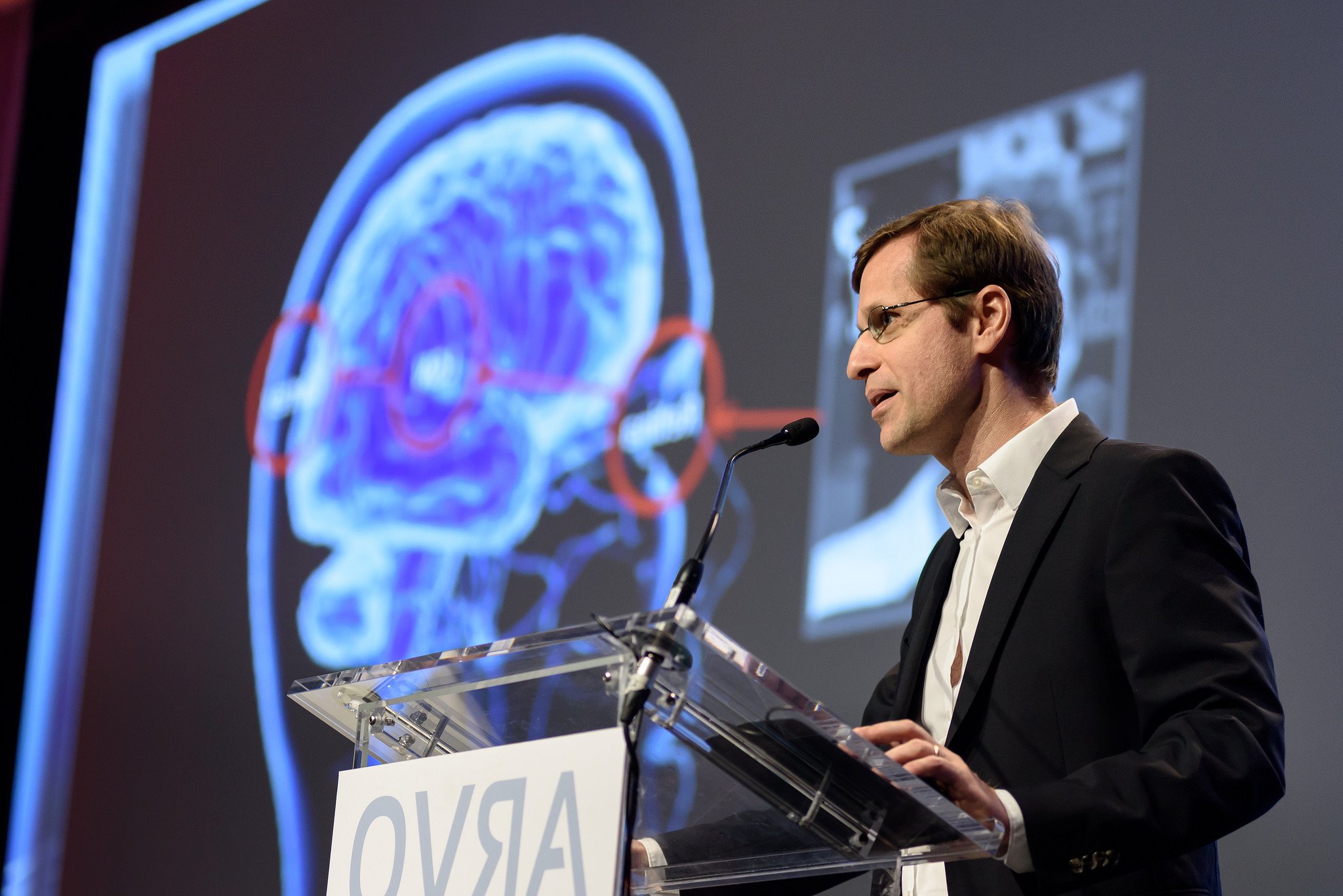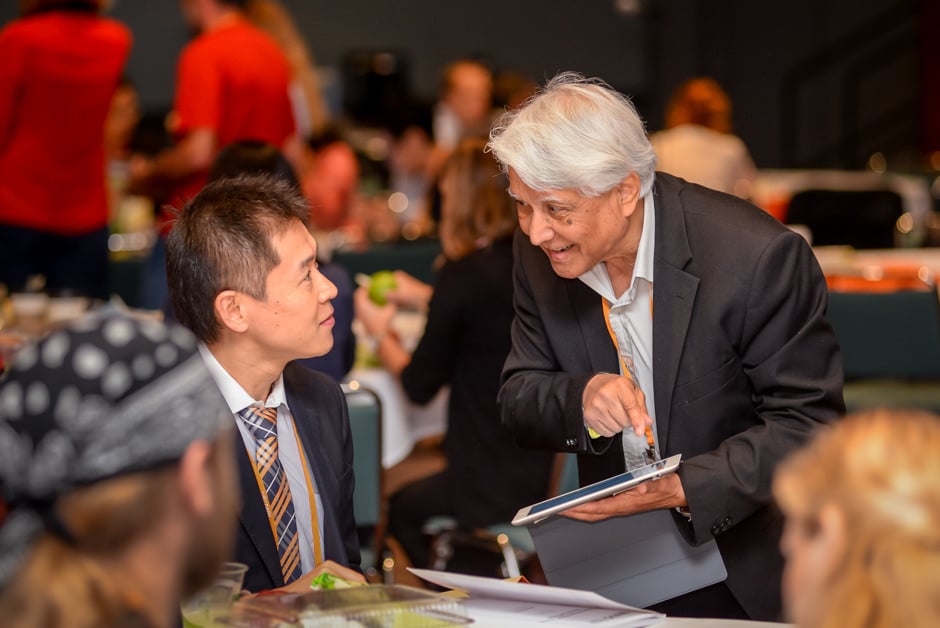Symposia
Sunday, May 1, 8-10am MT
Cell-based therapies for vision restoration
Organizers: Yvonne Ou and Brian Samuels
Speakers: Sophie Deng, Markus Kuehn, Petr Baranov, Jason Meyer, Deepak Lamba and Timothy Blenkinsop
Cell-based therapies for ophthalmic diseases have made significant progress over the last decade. The ability to generate and characterize various ocular cell types has blossomed, and now some of these cell therapies are transitioning to clinical application. Despite these advances, there are still many challenges in the field and a discussion among researchers working across the spectrum of ocular cell types and diseases will be very useful and in line with ARVO 2022’s theme of team science and collaboration. This symposium will address topics related to cell-based therapies targeting diseases from the anterior to posterior segment, as well as the challenges of immune suppression to ensure success in ocular cell transplantation strategies.
Cellular Senescence and Immune Response in Ocular Health and Disease
Organizers: Ashok Kumar and Przemyslaw (Mike) Sapieha
Speakers: James L. Kirkland, Cintia S. De Paiva, Przemyslaw (Mike) Sapieha, Rajendra Apte, and Dorota Skowronska-Krawczyk
Cellular senescence was classically viewed as a state in which a cell can no longer proliferate. Senescent cells accumulate throughout the body with age and are thought to contribute to age-related disease. In addition, environmental stressors can trigger programs that lead to cellular senescence. Despite the strong link correlation between age and ocular health, few studies have investigated the role of cellular senescence in eye diseases. It is increasingly clear that the accumulation of senescent cells leads to tissue dysfunction, age-related diseases, and organ aging. Moreover, senescent cells drive inflammation and immune dysregulation which, in turn, cause more senescence. Among immune cells, neutrophils and macrophages are known to have regulatory roles in tissue regeneration and repair. However, the interaction between immune cells and senescent cells in the eye is just starting to be explored. Mounting evidence indicates that immune cell-mediated targeting of senescent cells is an emerging and promising strategy to combat aging and chronic diseases and to extend the healthspan. This symposium will cover topics related to the causes and consequences of cellular senescence in various eye diseases, the interplay of the immune system with cellular senescence, and therapeutic approaches to reduce or reverse cellular senescence.
New Vision for Restoring Visual System Dysfunction: Role of Neuromodulation and Optogenetics in Rehabilitation
Organizers: Fatema Ghasia
Speakers: Gislin Dagnelie, Fatema Ghasia, Stephen Macknik, Benjamin Thompson, Daniel Yoshor, Alex Yuan and John Gerard Flannery
The visual system has evolved to perform intricately complex sensory, motor, and perceptual tasks. It can simultaneously attend to target stimuli and perceive the form and depth of objects while tracking moving targets. This is done so effortlessly and continuously in daily life due to the visual system's organizational structure, which permits the automatic functioning of these multifaceted tasks. Loss of vision and oculomotor dysfunction significantly impact the quality of life with new strategies for restoring vision, a top global health priority. Vision-assisted technologies to restore sight have translated from laboratories to clinics over the last two decades due to advances in non-invasive brain stimulation using magnetic fields and direct electrical stimulation using implantable prosthetics. Recent advances in molecular and ultra-large mesopic imaging in the cortex have opened new pathways to develop neuroprosthetics using precisely targeted optogenetic activation. This symposium will provide an international platform to bring together clinicians and scientists of multiple disciplines with expertise in visual neuroscience, oculomotor systems, functional neurosurgery, and retinal surgery to investigate neuromodulation and optogenetics activation to restore vision. The symposium will focus on the technical challenges and lessons learned from examining retinal and cortical visual implants and deep brain stimulation to restore visual dysfunction and discuss the integrated approaches of utilizing eye-tracking technologies to develop the next generation of implantable and non-invasive prosthetic technologies.
Tuesday, May 3, 8-10am MT
Autophagosomes, lysosomes and other -somes: Their role in ocular tissues homeostasis
Organizers: Paloma Liton
Speakers: Hideaki Morishita, Paloma Liton, Raji Shyam, Kathleen Boesze-Battaglia, Debashish Sinha and Patricia Boya
The autophagy lysosomal system is commonly regarded as a degradative mechanism in response to stress; however, during the last years, autophagy is emerging as a central pathway involved in development, differentiation, and tissue homeostasis. This symposium brings together a platform of recognized experts in autophagy in different ocular tissues, including cornea, lens, trabecular meshwork, and retina. The autophagy lysosomal pathway will be discussed within the context of tissue homeostasis.
Retinal cell biology entering human era
Organizers: Petr Baranov and Yan Chen
Speakers: Valerie Canto Soler, Deeba Husain, Ludovic S. Mure, Kapil Bharti, Alejandra Bosco and Marco Zarbin
The advances in stem cell and retinal biology together with the clinical imaging and functional assessment allowed us to approach the understanding of basic biological processes in the human retina. In this symposium you will hear from the vision researchers across the globe on the new paradigms in human retinal cell biology, innovative methods of the laboratory science and tools for functional and structural assessment of human retina in clinical setting. They will also summarize good strategies to approach understanding human cell biology in animal and ex vivo/in vitro systems.


